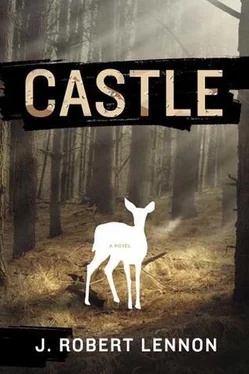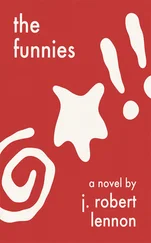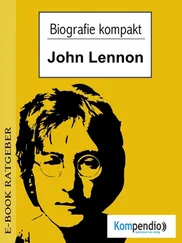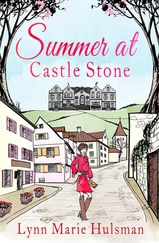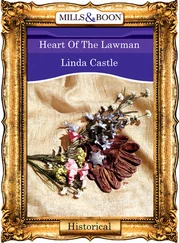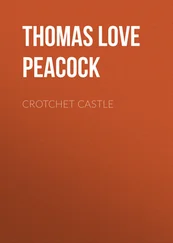Because of my manic attention to the meal, I failed to notice precisely when Doctor Stiles appeared and sat down across the table from me. I only registered his presence when I heard him say, “Stop eating.”
I looked up, stunned, and swallowed the bite of potatoes and meat I had been chewing. My eyes narrowed involuntarily as I awaited the blow, but it didn’t come. Instead, the Doctor rewarded me with a half smile.
“I’m sorry, Eric,” he said. “Please, continue.”
After a moment’s hesitation to make sure I wasn’t being tricked, I resumed eating, this time at a more reasonable pace. I hazarded a glance at the Doctor every few seconds, alert for changes in his demeanor. He appeared strangely composed, given the unusual setting, and our having made our way here through those dense, treacherous woods.
“Have you noticed, Eric,” he asked me suddenly, “anything unusual about these woods?”
I slowed my chewing as I considered, then swallowed and said, “No, sir.” My voice came out hoarse, as if I’d been screaming for hours.
“What usually bothers you, Eric, when you eat outdoors?”
“Rain?” I offered, and drained the milk glass.
“Perhaps, but what I’m referring to is insects. Have you noticed any here?”
“No, sir,” I admitted, shaking my head.
“What about squirrels?”
“No, sir.”
“Aside from a few birds high overhead, or perched on the rock,” Doctor Stiles said, “there aren’t any. Not that I’ve seen. At first, I thought that the construction of the castle had simply disrupted their environment. But it’s been several months now since it was finished, and the animals have not returned. Do you know what I think, Eric? I think this place is tainted.”
The food was almost gone. I couldn’t remember ever having eaten so much in a single sitting in my entire life.
“I’m sure you wonder what could taint a forest. I’ll tell you my theory. I believe this is where, in the early 1800s, every single member of the Kakeneoke tribe of Indians was massacred by white settlers. I have read about this massacre in a few books of local history, and a number of historical journals. It is also mentioned in the handwritten journal of a retired Revolutionary War soldier named Ezekiel Cordwell, who homesteaded nearby. None of these sources are specific about the time and place of the massacre, and they all have spelled the tribe’s name slightly differently. But I believe they are all referring to the same event, and I believe that this event happened here.” He leaned forward. “Do you wonder, Eric, what evidence I have for this belief?”
“No, sir.”
“I’ll tell you, Eric — I have no evidence. But I can feel it, in my gut. Do you know what I mean by that?”
“No,” I said, and a jolt of fear sent me bolt upright in the chair. I had left off the “sir” and expected the Professor to hit me. But he continued to speak as if he hadn’t noticed.
“I mean that I have taken all available information — the peculiarity of the woods, the stories I have read, the maps I have pored over — and processed it through the unique filter of my particular intelligence, and have come up with a feeling, an almost physical sensation, that I am correct. Sometimes, Eric, it is possible to know you are correct. The feeling I get when I am right about something is very powerful, and infallible. The massacre happened here.
“I’ll tell you something else,” he went on, stretching out his legs and gazing at the sky, as though to judge the time of day. “I believe that whatever lingers here from that gruesome event, whatever force or substance or idea that has tainted these woods, is what sickened and killed my wife and daughter. Somehow, the essence of the massacre has remained here, in the ground, in the very trees and wind and water, and has retained the power to kill.” He paused, then turned to me, his gaze frightening and direct.
“You and I, Eric, are in no danger. I can promise you that. We have something my family did not — we are strong. We are destined for greatness. Don’t forget that.”
He was through speaking, and he stared at me now for many minutes on end, seemingly without blinking. For my part, I did not entirely understand what he said, though I would remember his words and reflect upon them often in the years to come. I did understand, though, that I had been declared exceptional, and I believed it to be so. I knew it to be so.
I don’t accurately recall the journey out of the woods that night, although I do remember that it was nearly dark when we emerged at the house, and that my father was there to collect me, and that he was forced to pull over to the side of the road on the way home, in order to let me vomit. I also remember my mother’s stricken expression when she saw my face and clothes, and the wonderful sensation, once I had bathed and was comfortably tucked into my bed, of succumbing to absolute exhaustion. I don’t think I have slept so deeply in my life, nor do I expect to ever again.
That summer, and the next, were filled with moments of terrible isolation, loneliness and fear, hours in complete darkness, exhaustion and pain. But I also know that I experienced great joy there — with Doctor Stiles’s help, I honed my strength and agility, lifting and building structures, climbing walls, hunting the Doctor and hiding from him in the woods.
It was this latter activity that has provided me with perhaps my most intense memory of those days, an event that occurred in late summer of my second year with Doctor Stiles.
For some time, the Professor had petitioned my parents to allow me to spend the night in the castle with him. This would certainly have been acceptable to my father, and to me as well, but my mother objected, and for whatever reason, her opinion was respected. It was understood that I would be returned at the end of every training day to the house at the top of the hill. Eventually this arrangement became routine, and after a while I no longer even thought about the possibility of its being otherwise.
Each morning, when the Doctor and I embarked upon our journey to the castle, we entered the forest from a different location at the edge of the yard, and struck out through the trees in a different direction; on the way back, we would do the same. Though I sometimes thought I recognized some familiar landmarks — a particular stand of trees, or marsh, or patch of moss — I never felt as though I could find my way to the castle on my own, nor find my way back out to the house or road. Initially, this disorientation caused me some unease, but I had long since grown used to Doctor Stiles’s unorthodox ways, and come to expect these idiosyncratic treks. Indeed, at the time this incident occurred, I had even become rather complacent — though my days in the woods were always a challenge, I was confident that the challenge was always one I could meet.
On the morning in question — a hot, overcast, and muggy one in the
middle of August — the Doctor and I set out as usual, with him nimbly hopping over bramble and deadfall, from one clear patch of ground to the next, and me following carefully about ten steps behind. By now I knew how to dress on these outings — I had acquired a pair of khaki jungle pants with zippered legs that could be removed below the thighs, to protect from abrasions or excessive heat, and wore sturdy, lightweight boots and a wide-brimmed hat. I remember feeling particularly self-assured and comfortable that day — at the age of eleven, I had achieved what I considered to be an unusual level of self-confidence and physical well-being.
About half an hour into our journey, the Doctor stopped suddenly, raised one hand in the air, and cocked his head, as though to better hear some faint noise. Needless to say, I stopped as well, and listened carefully.
Читать дальше
